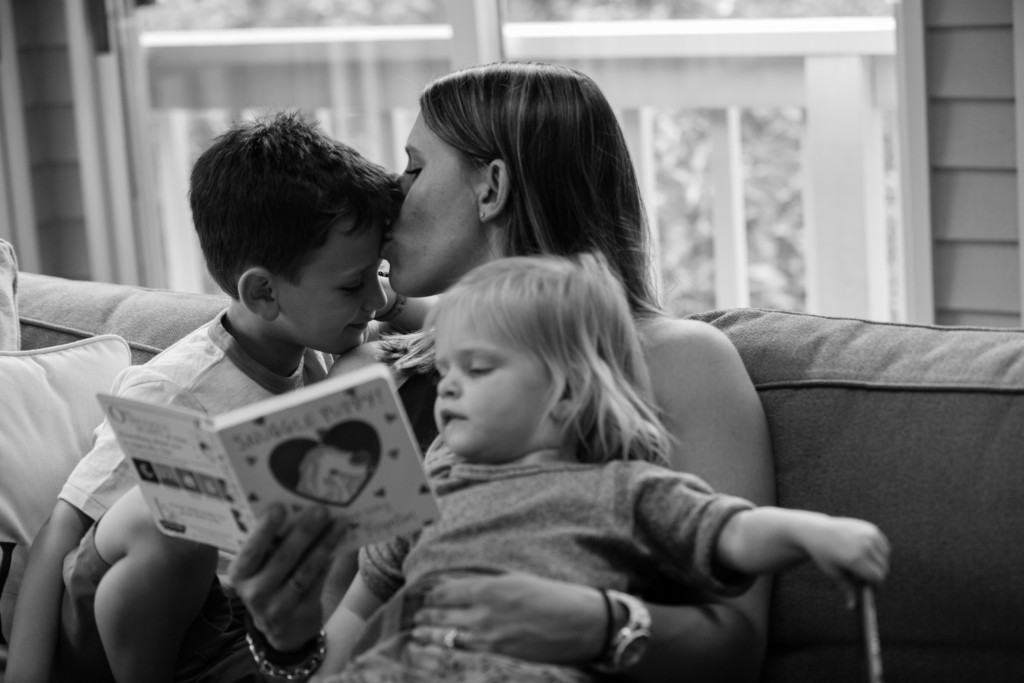
My son was born 10 days past his due date, but other than that, he was right on target for all the first-year milestones — he sat at 4 months independently, started crawling at 6 months. You get the picture. But around his first birthday I noticed he wasn’t as verbal as some of his peers.
He was able to say “Da-da,” but not much else. We attended a “sign-along sing-along” class every week, so he had learned a little bit of sign language to help communicate his basic needs — “water,” “more,” “all done.” This aided in our communication with him, and I figured words would come soon.
If I mentioned to others that my son wasn’t talking yet, I was always met with attempts to reassure: “Boys are late to talk.” “He won’t go to college not talking.” And, “He’s your first — you worry about everything.” At 18 months he had a few more words, but not many — definitely not the 10-20 words that are typical of kids at that age. He was frustrated at times because he wanted to communicate with us but wasn’t able to. Even our pediatrician told me he would talk and that I shouldn’t worry. But I had “What to Expect: The Toddler Years” memorized, and I knew my son was late to the talking game.
Following his 18-month check-up, I decided to take matters into my own hands. I had Googled what to do in a situation like this, and all pages pointed to Early Intervention. I contacted our local Early Intervention program. And I never looked back.
The woman I spoke with on the phone guided me through the “self-referral process.” Our pediatrician didn’t even tell me about this! I answered simple questions regarding our insurance, why I was calling about my son. Two weeks later, a team would come to our house to evaluate him.
It’s important to know that any parent can refer their child to be evaluated by Early Intervention — you don’t have to wait for a teacher or medical professional to step in. Eligible children include those from birth to age 3 who were born with a disability or health condition that affects their development. Children who were born prematurely, have feeding, vision, or hearing issues, are slow to crawl, sit, walk, talk, or do things for themselves, have behavior or attention difficulties, or have been identified as having environmental risk factors may also be eligible.
According to the Early Childhood Technical Assistance Center, more children are in need of services than are currently being served. In 2009, only 348,604 children received services nationally, which represents 2.67% of the general population of children ages birth to 3. However, research indicates that as many as 13% of these children have delays that would make them eligible according to criteria commonly used by the states. Early Intervention is being grossly underused.
Cut to the chase… my son qualified for services! Contacting Early Intervention was one of the best things I did for my child, and it was surprisingly simple. It is has been a wonderful resource for our family, and we couldn’t be happier with the results.














We’ve LOVED our Early Intervention experience. I first learned about EI through a friend, so I love spreading the news through word of mouth as well — so many people are completely unaware it’s an option. I’m secretly hoping my next kid qualifies, since the benefits have been awesome for me as well — an hour each week where another adult comes to my house to play with my kid? Yes, please! And a free preschool once a week where I get two hours to myself to catch up on work? Love it!
Ashley, isn’t it great? My second one is enrolled as well, she has enjoyed the benefits as well!!